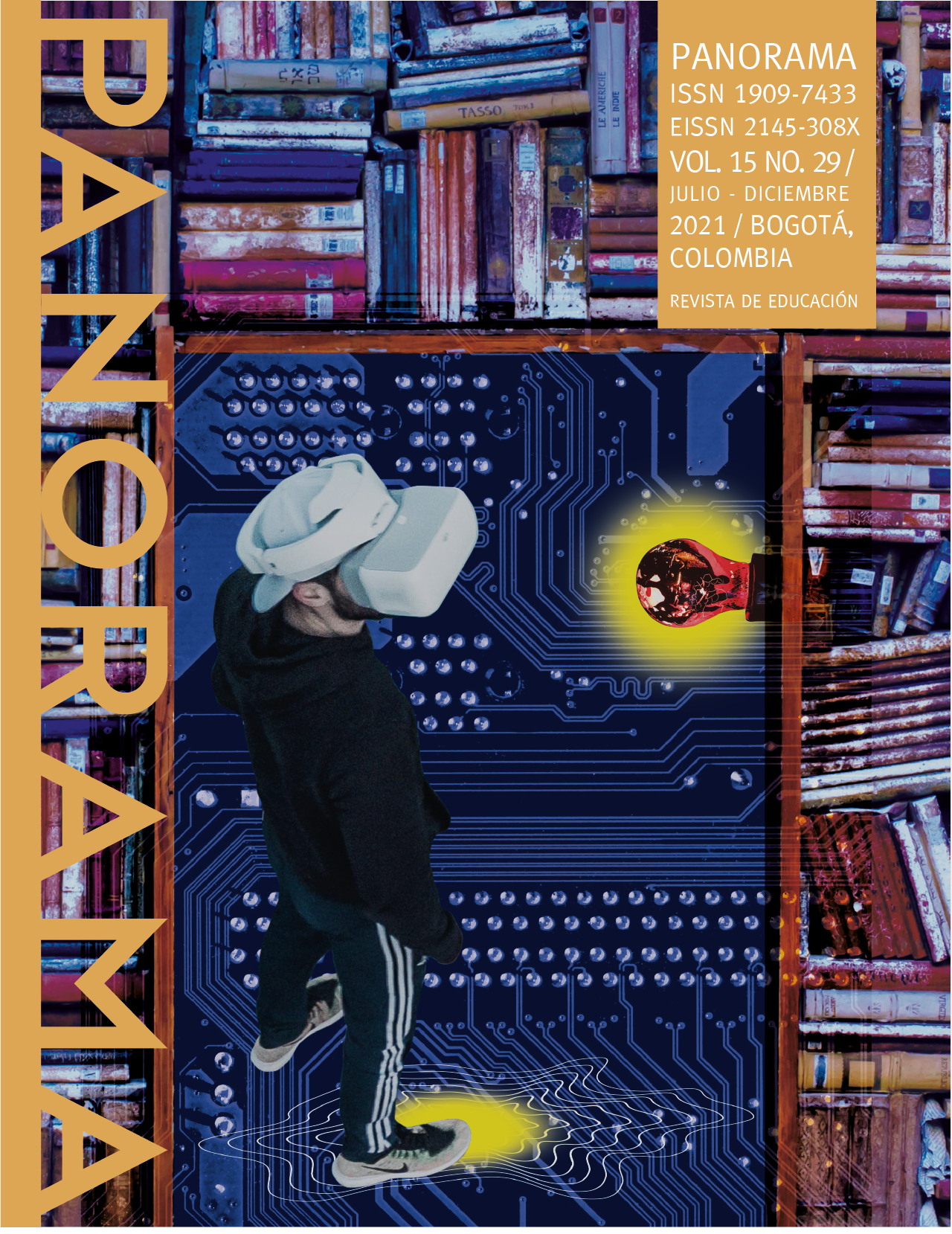Abstract
OBJECTIVE: to propose European philately as a historical source, and analyze it as an iconographic resource to document the history of pedagogy from Spinoza to Kant. MATERIALS AND METHODS: the research is qualitative, a descriptive-explanatory documentary review, which follows a heuristic-hermeneutical methodology. The image is analyzed from an iconographic-iconological proposal, to the extent that its contents were related to the history of pedagogy, in the selected time interval. RESULTS AND DISCUSSION: 19 postage stamps issued between 1955 and 2016 have been reported; Its iconography relates biographical aspects of figures, that like Spinoza, Newton, Leibniz, Berkeley, Vico, Bayle, of Fontenelle, of Maupertuis, Diderot, d'Alembert, Voltaire, Montesquieu, Condorcet, Rousseau and Kant, left their mark on the history of the pedagogy. The results suggest that the philatelic image can be used as a complement to the history of pedagogy; in this case, from Spinoza to Kant. CONCLUSIONS: it is necessary to strengthen the configuration of a methodological body, aimed at enhancing the value of postage stamps, as a historical source and as a didactic resource in the history of pedagogy.
References
Abbagnano, N., & Visalberghi, A. (1964). Historia de la Pedagogía (J. Hernández-campos, trad.). Madrid, España: Fondo de Cultura Económica.
Aboites, V. (2011). Los Elements de la Philosophie de Newton de Voltaire y su interpretación de la naturaleza de la luz. Revista Mexicana de Física E, 57, 134-143.
Aguilar-Bedoya, C. (2013). Iconografía e iconología: tránsito de la descripción a la significación en ciencias sociales. Revista Académica e Institucional, Arquetipo, 6, 109-121.
Ayuso-Calvillo, A. (2007). Entre difusión y propaganda: la literatura latina a través de los sellos de correos. Minerva: Revista de filología clásica, 20, 191-216.
Böhm, W. (2010). La Historia de la Pedagogía. Desde Platón hasta la actualidad. Córdoba, Argentina: Eduvim.
Casale, R. (2004). The educational theorists, the teachers, and their history of education. Studies in Philosophy and Education, 23, 393-408. https://doi.org/10.1007/s11217-004-4451-2.
Cordero-Cordero, G. (2005). Immanuel Kant: tres comentarios a su pensamiento educativo. Praxis: Revista del Departamento de Filosofía, 58, 6-24.
Cordoví-Díaz, F., & Keeling-Álvarez, M. (2018). La utilización de la imagen digital en el proceso pedagógico universitario. Atenas, 42(2), 92-100.
Darós, W. (2000). La construcción de los conocimientos en los niños según el empirismo de John Locke. Invenio. Revista de Investigación Académica, 4-5, 57-76.
Galceran, M. (1998-1999). El Tiempo de la Historia. Logos: Anales del Seminario de Metafísica, 32, 287-304.
García-Sánchez, J. (2007). Sellos y memoria. La construcción de una imagen de España, 1936-1945, Studia historica: historia contemporánea, 25, 37-86.
Genovesi, G. (1991). Problemas de historiografía de la educación. Historia de la educación: Revista interuniversitaria, 10, 299-306.
Gil-Sierra, J. (2002). La agricultura en la filatelia. Vida rural, 154, 74.
Gomajoa-López, M. F. (2018). La Influencia de los Principia de Newton en el pensamiento científico matemático de José Celestino Mutis, como base para el desarrollo de la Ciencia Nacional. En: XIV Coloquio Regional de Matemáticas y IV Simposio de Estadística, Pasto, Colombia.
http://sired.udenar.edu.co/4560/
Gribbin, J. (2003). Historia de la ciencia. 1543-2001 (M. García, trad.). Barcelona, España: Editorial Crítica.
Jones, R. (2001). Heroes of the Nation? The Celebration of Scientists on the Postage Stamps of Great Britain, France and West Germany. Journal of Contemporary History, 36(3), 403-422.
Kant, I. (1983). Pedagogía. Madrid, España: Akal.
Kant, I. (2004). Tratado de Pedagogía. Revista Educación Hoy, 159, 47-102.
Lafuente-Guantes, M.I. (2009). El proyecto educativo-ilustrado de Kant. Revista Historia de la Educación Latinoamericana, 13, 241-264.
Locke, J. (1986). Pensamientos sobre la Educación. En Locke, J. Pensamientos sobre la educación, traducción de La Lectura y Rafael Lasaleta. (p. 25-275). Madrid, España: Akal.
Losee, J. (1981). Introducción histórica a la filosofía de la ciencia. Madrid, España: Alianza Universidad. (Edición original en inglés, 1972).
Martínez-Reina, M. (2021). Filatelia e historia de la ciencia: una biografía filatélico-didáctica de Albert Einstein. Revista Eco Matemático. 12(1), 74-92.
https://doi.org/10.22463/17948231.3071
Mallo-Gambetta, M. (2009). Aportes desde la Historia de la Educación ¿Por qué y para qué la Historia de la Educación? Revista Quehacer Educativo, diciembre, 83-86.
Miralles-Sangro, M. (2011). La imagen enfermera a través de los documentos filatélicos desde 1840 hasta el 2000. Una contribución a la historia de la enfermería (Tesis Doctoral). Universidad Complutense de Madrid: Madrid, España.
Moreno-Moreno, D. (2018). El Descartes de Spinoza. Laguna: Revista de Filosofía, 42, 29-46.
Monroy-Avella, F. (2019). Meta-formas narrativas del sello de correos. Lecturas del sello español. Tópicos del Seminario, 42, 101-123.
Ortiz-Rivera, G., & Cervantes-Coronado, M. (2015). La formación científica en los primeros años de escolaridad. Panorama, 9(17), 10-23.
Pagden, A. (1997). Ley y sociabilidad en Giambattista Vico: hacia una historia crítica de las ciencias humanas. AGORA: Papeles de Filosofía, 16(2), 59-80.
Panofsky, E. (2006). Estudios sobre iconología. Madrid, España: Alianza Universidad.
Pulido-Cortés, O. (2017). ¿Sirve la historia de la educación hoy? Praxis & Saber, 8(17), 9-14.
Reid, D. (1984). The Symbolism of Postage Stamps: A Source for the Historian. Journal of Contemporary History, 19(2), 223-249.
https://doi.org/10.1177/002200948401900204
Rousseau, J. (1990). Emilio o la educación. Madrid, España: Alianza Editorial.
Rozas-García, M. (2015). Salud sexual y reproductiva en la filatelia. Análisis iconográfico de los sellos de correo (Tesis Doctoral). Universidad Complutense de Madrid: Madrid, España.
Sánchez-Delgado, P. (2005). La didáctica de la historia en la historia de la didáctica. Revista Complutense de Educación, 16(1), 195-226.
Simóes-Francisco, M. (2000). La filosofía de la educación de Rousseau. Una propuesta de relectura del Emilio. Revista Educación y Pedagogía, 12, 63-75.
Solís, C., & Sellés, M. (2020). Historia de la Ciencia. Barcelona, España: Editorial Espasa.
Vico, G. (1948). The New Science (T. Goddard and M.H. Fisch, Trad.). New York, Estados Unidos: Cornell University Press.
Voltaire, F. (1988). Cartas filosóficas. Madrid, España: Alianza Editorial.

This work is licensed under a Creative Commons Attribution-NonCommercial-NoDerivatives 4.0 International License.






